Racism
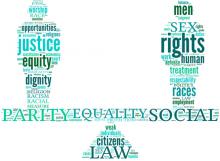
Adaptation is how a bitter and broken South survived its own worst instincts after the war. Progressive pockets emerged in college towns and later in large cities. Hungry for Northern business, the region became less racially polarized. In time, a black man could become mayor of Atlanta and another could become the Episcopal bishop of North Carolina.
The Rev. Martin Luther King, Jr.’s dream of 50 years ago came to seem possible. Distant, yet possible.
But now the dream has receded. The fact of a black president seems to have reopened a pulsing vein of racism. Operating under cover of fiscal austerity, vengeful state politicians are gutting decades of programs that helped the South move forward by helping blacks and Latinos to have a chance.
No more affirmative action, they say; no more dark-skinned citizens flocking to voting stations; no more voting districts shaped by fairness; no more protections from ground-level aggression against people of color.
Once again, as happened in the 19th century, impoverished whites who should be lining up to resist predatory behavior by the moneyed class are being turned against their own best interests by race politics.
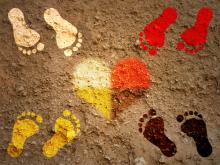
I was in my office on a quiet afternoon when I saw the car pull into the parking lot.
Those of us who work in churches are familiar with people stopping by seeking a bit of financial help. But people stop by churches for lots of reasons. It’s best to wait to see what they want before making assumptions.
As I watched the African-American gentlemen get out of his car, I sighed. My peaceful afternoon was going to be interrupted by yet another request for help. We could do that, but it would take some time. He came into the church and I greeted him.
“Hi, how are you?”
“Fine,” he said. “But I think I’m lost. I’ve got this appointment at a business near here, but I think I missed a turn. Can you help me figure out where it is?”
So why did I assume he was looking for a handout? The only variable was the color of his skin. And in that moment, I realized how quickly I make judgments about people based on stereotypes that lurk within me. And I was grateful that I had kept that stereotype to myself when I greeted the man.

Where do we go from here?
From the denial of racism to the naming and facing of racism.
If we are to move forward, we must acknowledge that racism is alive and well in the American psyche. It continues to function as a demonic force with devastating consequences for us all. To be white in America is to benefit from a system of power and privilege whether or not one has ever uttered a racist thought or committed a racist act.

It is not very difficult to understand why there is a black church and a white church in America today, or to realize that this structure will not change in the near future. The religious atmosphere created by the coming together of blacks (who were slaves) and whites (who were masters) tended to negate any possibility of developing the true unity and oneness that scripture proclaims for the church. The agendas of the slaves were vastly different from those of the masters. Unfortunately, conflict over agendas, both stated and unstated, continues to be one of the reasons that blacks and whites do not come together to worship.
![U.S. Secretary of State John Kerry shakes hands with Raymond Kelly. Photo courtesy U.S. Department of State, via Wikimedia Photo courtesy U.S. Department of State [Public domain], via Wikimedia Commons](https://sojo.net/files/styles/medium/public/blog/512px-U.S._Secretary_of_State_John_Kerry_shakes_hands_with_Raymond_Kelly_Commissioner_of_the_New_York_City_Police_Department_NYPD-427x284.jpg)
Muslim-American groups are mounting a growing campaign to quash the potential nomination of New York City Police Commissioner Raymond Kelly as the next secretary of the Department of Homeland Security.
Muslims say that as head of the nation’s biggest police force, the commissioner oversaw a spying program that targeted Muslims based solely on their religion, showed poor judgment by participating in a virulently anti-Islamic film, and approved a report on terrorism that equated innocuous behavior such as quitting smoking with signs of radicalization.
Homeland Security chief Janet Napolitano announced she is resigning in September to become president of the University of California system.
“Mr. Kelly might be very happy where he is, but if he’s not, I’d want to know about it, because obviously he’d be very well qualified for the job,” President Barack Obama said in a July 16 interview with Univision.
Muslims are particularly indignant because Obama said on numerous occasions that he would work to end profiling.
The battles over immigration reform and race have weighed heavily on me this summer. They have each become a symbol and a test, for me, of whether we can resurrect “the common good” in this nation.
I say that having just met with virtually all the key decision makers on when, how, and even if our nation’s politicians have the capacity to reform our terribly broken immigration system and help heal the nation from all the pain it has caused. Almost two-thirds of the country — both Democrat and Republican — is for reform, but this ideological impasse is now the greatest threat to our 11 million undocumented friends and neighbors in this country. I have met with both Republican and Democrat senators and members of Congress, including their leaders, the president and his leadership team, law enforcement officials, business leaders, and hundreds of pastors and Christians across denominations and backgrounds — all of whom want to repair this deeply flawed and cruel system.
There is so little substance to oppose reform. It’s good for the economy, for law enforcement, for families, communities, and congregations, and for the moral fabric of our nation — as a place of diversity, growth, and welcoming.
You see, politics really isn’t the problem here. Nobody wants to talk about what is at the very heart of the problem: race.
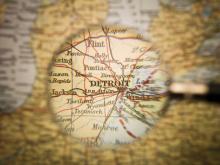
Eventually, Butch invited me to come to his home and meet his family. I felt deeply honored and very eager to go. But every time I asked him to write directions to his place, he would change the subject. Finally one day with pen and paper in hand, I sat him down and said, "Look, Butch, how do you expect me to get to your house if you don't write out directions for me?"
Awkwardly he began to scribble on the paper. I was deeply sad when I realized the reason he had hesitated before was that he could barely write; I was ashamed at my insensitivity.
That small incident was very significant to me. I went home that night and both cried and cursed. I could not believe that someone as bright as Butch had hardly been taught to write. I was furious at a system that had given me so much and him almost nothing, simply by virtue of our skin color. By accident of birth, I had all the benefits and he all the suffering. I vowed again through angry tears to do everything I could to change that system.

I have always loved baseball. Growing up on the mean streets of East Los Angeles, baseball was the one activity that kept me away from the pitfalls many young Latino males face on a daily basis. Summer days were spent—sunrise to sunset—in makeshift sandlots in the shadows of Dodger Stadium, fielding bad-hop grounders and striping screaming line drives. It was our neighborhood pastime.
On the occasion when enough coins were scraped up to venture into the venerable cathedral, Dodger Stadium, our baseball heroes paraded before us on this hallowed turf. Our childhood heroes were rarely categorized according to ethnicity and nation of origin but always according to the color of their uniform, Dodger Blue. It was the name on the front of the uniform that mattered, not the back.
As maturity set in and the complexity of national racial issues manifested themselves with the social unrest of the late 1960s, I came to a deeper understanding of the diverse and painful racialized world in which I lived. Baseball was not the safe and immune haven I had first imagined. I became aware of the once segregated Negro Leagues and the painful history of Jackie Robinson, the first Black player to integrate into the “major leagues.” I also realized that even in my English speaking, Mexican-American home, I too was not nationally normative. I was Mexican-American, Latino, Hispanic, Chicano (albeit, born in the United States) and spoke with a distinct accent that immediately identified me as such which, in this country, included labels like wetback, beaner, spic[!], etc.
It was about this time that my relationship with the national pastime took an interesting turn. As much as I wanted to focus on the name on the front of the uniform, I couldn’t help but notice the names on the back of the uniform. Cepeda, Clemente, Marichal, Tiant, and Concepción all became a part of my racialized purview. This realization came to full fruition with the onset of Fernandomania in the 1980s.
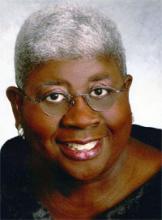
I suppose I could live my life saying, "I will never allow myself to try to understand white people. I will cut myself off from them. I will live my life as a black woman, and I'll just keep white people in boxes." But to do that means to keep myself cut off from a part of myself. And if white people do that about black people, I think the same is true: It keeps them cut off from a part of themselves.
For those of us who are Christians, I don't think we have any choice in the matter. I think God has made it clear that we're to be reconciled to God and each other. And if we're to be reconciled to each other, that includes everyone who happens to be in the world with us.
Reconciliation demands that you not take sides; it demands that you take a stand, I think—a stand that's maybe a merging of a lot of different pieces that represent several different kinds of philosophical stances. I think that one who chooses a road of reconciliation must be willing to look at more than one side of the coin.
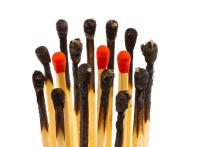
WHO ARE WE? WHERE ARE WE GOING? And how are we going to get there? We can no longer answer these questions. Indeed, we have stopped asking them. But just as the future of blacks seemed to be in peril when integration was introduced decades ago, our future as a viable racial and ethnic group in this country will be greatly diminished unless a new model for racial and cultural development is established.
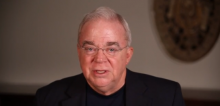
Jim Wallis sat down after the George Zimmerman verdict earlier this month to give his thoughts on race, faith, and truth.
"We live in our different worlds. That's not what we're supposed to do as the body of Christ."
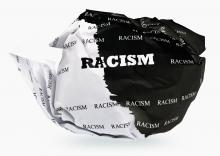
IN SPIRITUAL AND BIBLICAL terms, racism is a perverse sin that cuts to the core of the gospel message. Put simply, racism negates the reason for which Christ died—the reconciling work of the cross. It denies the purpose of the church: to bring together, in Christ, those who have been divided from one another, particularly in the early church's case, Jew and Gentile—a division based on race.
There is only one remedy for such a sin and that is repentance, which, if genuine, will always bear fruit in concrete forms of conversion, changed behavior, and reparation. While the United States may have changed in regard to some of its racial attitudes and allowed some of its black citizens into the middle class, white America has yet to recognize the extent of its racism—that we are and have always been a racist society-—much less to repent of its racial sins.
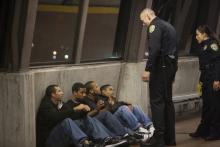
I tend to keep my heart under lock and key. I am not prone to Merton-esque revelations. My conscious mind is a far safer vantage point from which to view life’s experiences, so when a friend invited me to go see the newly released Fruitvale Station last night, I thought that was the perspective from which I would see it: my logical mind, my heart under wraps. It was about a subject with which I have no experience and only vaguely remembered from the papers a few years back. I thought it would be a perfect film for my head to be educated while my heart remained safe. I was wrong.
Fruitvale Station broke my heart open.

A straight-shooting white friend once commented that whenever blacks and whites are together it's like there's a "big pile of poop in the middle of the room" that everybody sees and smells but pretends isn't there.

Suddenly, it seems, white people are seeing the racial divide as looming larger than before. Race, so often dismissed by white people as an insignificant factor in contemporary U.S. society, has acquired meaning—meaning that they were working hard to ignore.

During a layover in the Phoenix airport on Friday, I caught the tail end of President Barack Obama’s remarks about the Trayvon Martin case. Struck by Obama’s words, I said to no one in particular, “It’s about time he said something about this.” The man next to me looked in my direction as I walked to get a snack, and I considered for a second going back and asking his impression of the president’s remarks. I kept walking toward the green licorice, but fate had other plans.
Who ended up being in seat 18B next to me? Yep. We smiled as we made eye contact, a mutual recognition that we had an overdue conversation coming and the time to have it.
For a living, I teach and facilitate dialogue. I train others how to — and why to — have challenging conversations that transform relationships and design community change. I have facilitated more than 10,000 hours of dialogue in the past 15 years.
I was feeling confident and curious. We got right into it.
“Well, looks like we are supposed to talk about it,” I said as he laughed. “What did you think of the president’s remarks?”
“I think I thought differently than you did,” John said

Oddly, I wasn't there the night George Zimmerman shot Trayvon Martin. I wasn't in the jury box either. Some commentators, like Ezra Klein and Ta-Nahesi Coates, are saying the not guilty verdict was appropriate according to Florida's "stand your ground" law. (Note that they are not saying that the Florida law is appropriate; Klein uses the word outrageous).
If this verdict was appropriate, though, what about verdicts in cases that were similar except for the color of the defendant? What happened to the "stand your ground" law when the jury reached its verdict against Marissa Alexander — an African American woman from Jacksonville, Fla.?
And anyway, why should fear of attack justify shooting to kill? It didn't in the case of John White — an African American man from Long Island, N.Y. — who shot a (white) teenager in 2006 (accidentally, he says, when the boy was trying to grab his gun).
John White, it appears, had good reason to fear the boys who showed up on his doorstep that night. That's probably why the governor commuted his sentence after he had served five months. And White no doubt should have served some time, according to New York law — his gun was unregistered, and if he hadn't been holding it when he went to the door, a scuffle probably wouldn't have escalated into manslaughter.
But, some say, the only thing that stops a bad guy with a gun is a good guy with a gun. Is this true?

Carolyn Winfrey Gillette, a pastor who is a foster mother to a four year-old African American boy, wrote this hymn after George Zimmerman was found not guilty for his shooting of Trayvon Martin. She had read Jim Wallis’ “Lament from a White Father” and heard the Rev. Otis Moss of Chicago's Trinity United Church of Christ interviewed for the NPR report, “For The Boys Who See Themselves In Trayvon Martin.”
We Pray for Youth We Dearly Love
O WALY WALY LM (“Though I May Speak”)
Solo (optional young voice):
“If I should die before I wake,
I pray thee, Lord, my soul to take....
And if I die on violent streets,
I pray thee, Lord, my soul to keep."
(Continued at the jump)
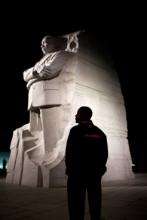
I first learned about President Obama’s comments about racism and the Trayvon Martin case last week when a Facebook friend posted a link with this comment:
“Full text of the American President’s divisive and racist remarks today. He moves smoothly into his new role as race-baiter in chief.”
My friend’s anger was matched by many others from PowerLine to Breitbart. But what I read seems to me as controversial as tomorrow’s sunrise and incendiary as wet newspaper.
Let me try an analogy.
Imagine that Joe Lieberman had been elected our first Jewish president. And that in a moment of crisis, he felt compelled to explain that some reaction to even the hint of anti-Semitism is partly explained by the Jewish cultural memory of the Holocaust. And he included personal anecdotes about growing up Jewish in America.
Would he be accused of being divisive and guilty of whatever the Jewish equivalent of “race-baiting” might be?
President Obama addressed the nation today regarding the George Zimmerman trial, giving his thoughts on the nation's response to the verdict and the state of racism in our society.
Folks understand the challenges that exist for African-American boys, but they get frustrated, I think, if they feel that there’s no context for it or — and that context is being denied. And — and that all contributes, I think, to a sense that if a white male teen was involved in the same kind of scenario, that, from top to bottom, both the outcome and the aftermath might have been different.
You can read the full transcript of his speech here.